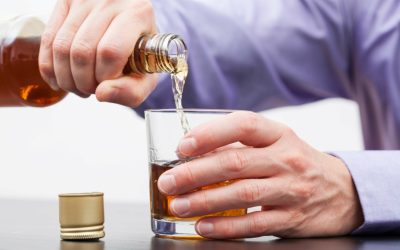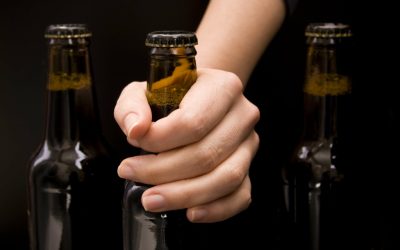The shifts in thinking and http://fc-sochi.com/showthread-t_1367.html behavior are critical because they lay the groundwork for changes in brain circuity that gradually help restore self-control and restore the capacity to respond to normal rewards. People can learn to resist or outsmart the cravings until they become manageable. There are strategies of distraction and action people can learn to keep them from interrupting recovery. Another is to carefully plan days so that they are filled with healthy, absorbing activities that give little time for rumination to run wild. Exercise, listening to music, getting sufficient rest—all can have a role in taking the focus off cravings.
The Stages of Change

While relapse is a normal part of recovery, for some drugs, it can be very dangerous—even deadly. If a person uses as much of the drug as they did before quitting, they can easily overdose because their bodies are no longer adapted to their previous level of drug exposure. An overdose happens when the person uses enough of a drug to produce uncomfortable feelings, life-threatening symptoms, or death. The term “powerlessness,” as it is used in addiction recovery, is often a turn-off, both to people in recovery and those in the general public, since the term is so misunderstood. Mindfulness training, a common component of cognitive behavioral therapy, can help people ride out their cravings without acting on them.
- For all practical purposes with regard to drug use, the terms remission and recovery mean the same thing—a person regaining control of their life and reversing the disruptive effects of substance use on the brain and behavior.
- A true addict in recovery can acknowledge past powerlessness but will also share a renewed hope that gives them agency to do something different in similar situations that before would have prompted them to gravitate to their compulsive ways.
- These reactions, although understandable and even normal, are nonetheless destructive for everyone.
Popular Methods of Addiction Treatment

So people might say they are “in recovery” when they are taking methadone or suboxone as treatment options. Or they may use psychotropic medications to manage co-occurring disorders. There are many overlapping features in mental health and addiction recovery – SAMHSA actually lays out 10. Leading the charge is hope – the idea that tomorrow may bring something better. And there is empowerment – feeling like you have the agency to make your own decisions, to be in control of where you are headed, and to take a stand when you don’t like where things are going. Recovery support resources can be found within recovery organizations at the local, state, and national levels.
Considerations for Primary Care Providers in the Diagnosis of Long COVID
If they do, it does not mean that recovery has failed; it just means that you may have hit a roadblock along the way in your journey. As the need for addiction treatment continues to rise, the potential for increased job opportunities in counseling positions underscores a significant shift towards prioritizing mental health services in the workforce. The U.S. Bureau of Labor Statistics (BLS) projects an 18% growth rate for substance abuse and mental health counselors by 2032. This surge is expected due to the rising awareness and need for mental health and addiction services in American society. Rehabilitation hospitals are designed to support recovery in a specialized setting, emphasizing intense therapies to help patients regain their functional abilities. The rise of outpatient care options has influenced the overall structure of healthcare facilities.
Behavioral therapies help people in drug addiction treatment modify their attitudes and behaviors related to https://madeintexas.net/flax-seed-in-folk-medicine.html drug use. As a result, patients are able to handle stressful situations and various triggers that might cause another relapse. Behavioral therapies can also enhance the effectiveness of medications and help people remain in treatment longer.
- More resources for a variety of healthcare professionals can be found in the Additional Links for Patient Care.
- Understanding the difference can help people learn how to transition from sobriety to a more all-encompassing approach to lifelong recovery.
- Distraction can also help interrupt craving-induced thoughts of using, which can gather momentum.
- Treatment and information aimed at adolescents can help them learn techniques for managing both positive and negative emotional states.

Happily, you don’t have to make all the mistakes yourself to learn what to do. Their missteps, when observed or communicated, provide guidance in how to proceed. While it is common to blame oneself for a fall, overly engaging in self-denigration is rarely helpful in recovery. The important thing is to take a look back to notice where you fell and what caused the stumble. Taking stock of the impediments enables people to learn as they go, staying more vigilant and discovering the nature of the terrain, diminishing the likelihood of making the same mistake going forward.
Your Personalized Recovery Journey

The patient attended, and after the meeting, he texted the Recovery Coach with thanks, stating he felt so much better, and he has continued to attend support groups ever since. This one-to-one contact between Recovery Coaches and patients, particularly in early treatment, can make all the difference. Again, as two women in long-term recovery, it made all the difference for us, especially early in our own personal journeys to recovery.

Supporting Recovery Together: The Advantages of Family Counseling in Addiction Recovery
Each person’s timeline for recovery varies based on their unique needs, http://airmed.com.ua/forum/index.php?showforum=247 substance use history, and life circumstances. However, recovery can be thought of in 4 primary phases that include withdrawal, early, middle, and late phases of recovery. Transitioning from sobriety to recovery takes both commitment and action. While most people can quit substance use for a short period, long-term sobriety is usually accomplished by traveling the road of recovery. The recovery process is one of ongoing healing and it is rarely accomplished alone.
